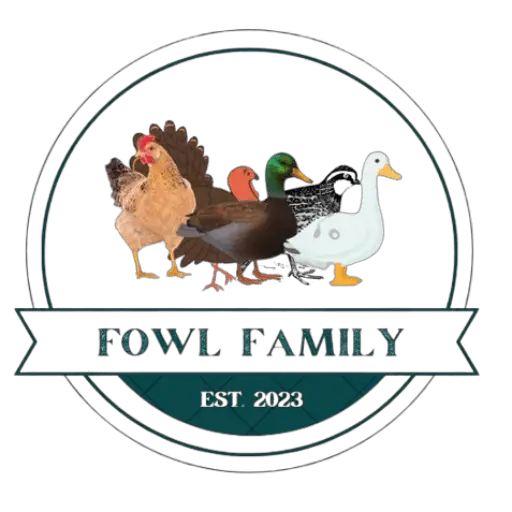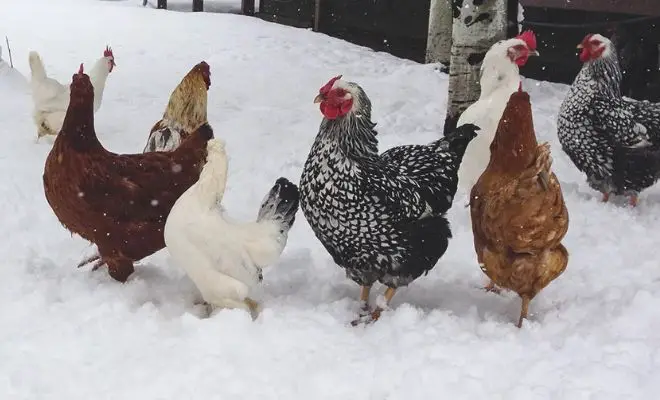
A pasty butt is a common issue among baby chicks. It occurs when their soft feces stick to the vent area, blocking proper elimination. This condition can be fatal if left untreated.
So, what causes pasty butt in chickens? Pasty butt is often caused by factors such as stress, improper nutrition, and unhygienic living conditions. The main causes include excessive cold (leading to diarrhea) and excessive heat (causing sticky poop). Fortunately, with proper care and attention, pasty butt can be treated successfully.
This article will uncover everything about the pasty butt condition in chickens. I’ll also offer tips on treating and handling health issues.
Table of Contents
What Causes Pasty Butt In Chickens? 7 Reasons!
A pasty butt or pasted vent is a common serious condition in chickens. It especially happens in young chicks. It occurs when sticky droppings cling to the vent area. However, here are the reasons to note down –
1. Poor hygiene
Poor hygiene can cause pasty butt in chickens. It creates conditions where fecal matter sticks to the feathers. It’s around the chick’s vent.
When bedding or living conditions are dirty, it leads to blockages and discomfort.
2. Stress
Chicks can become stressed due to several factors. Such as –
- Overcrowding
- Sudden temperature changes, or
- Being handled too roughly.
Stress can weaken their immune system and cause pasty butt.
3. Dietary issues
Improper nutrition is another blame section! Feeding low-quality or inappropriate food can lead to digestive problems and diarrhea. Ultimately, it makes pasty butt in chicks.
4. Temperature trouble
Young chicks have poor temperature regulation. Exposure to cold drafts or damp bedding can chill them. It impacts their digestion and leads to pasty droppings.
5. Dehydration
Chicks become dehydrated if they don’t have access to clean water. It can contribute to digestive issues and a pasty butt. Lack of water actually a big mess for them as they are waterfowl.
6. Genetics
Some breeds of chickens may be more prone to pasty butt. There is no specific reason but the genetic factors. It causes them to have pasty butts based on genetics.
7. Underlying Health Issues
A pasty butt can be a symptom of a more serious underlying health condition. For example – coccidiosis (parasitic infection) or bacterial infections.
9 Signs and Symptoms of Pasty Vent in Chickens
Before we talk about the symptoms of the pasty vent, let me clarify what is a normal chicken vent.
A normal chicken vent, located under the tail, should be clean and free of any discharge.
The hens have round, pinkish-red openings. It’s when they’re not laying, that elongates. And you see more moisture when they’re laying.
Roosters have smaller and less prominent vents than hens.
You may also notice –
- Free of any sticky droppings
- Pasty buildup, or
- Unusual discharge.
However, there are some symptoms to look for that indicates it’s pastry butt in chicken.
- Droppings stick to feathers around the vent.

- Chickens show discomfort. For example – restlessness, agitation, or vocalization.
- Decreased activity and lethargy.
- Loss of appetite and reduced drinking.
- Feathers around the vent are dirty or matted.
- Red, inflamed skin around the vent.
- Failure to thrive, stunted growth.
- Avoid any abnormal discolorations like green, yellow, or black.
- Straining or discomfort during defecation.
How to Treat Pasty Butt? 8 Prevention and Treatment Ideas!
Pasty butt can be managed effectively with proper action and understanding. Here’s what you need to know:
1. Cleaning the vent area
To clean the vent area in chicks, first, you need to gather –
- Warm water
- Cotton balls or soft cloth
- Small bowl
- Vegetable oil
- Electrolytes (lukewarm).
How to Clean Pasty Butt in Chickens?
To clean the pasty vent condition, here’s what you need to do –
- First, dip a cotton ball in warm water. Then, gently wipe away dried droppings. Be very careful not to pull or tug. It can injure the chick.

- Soak the cotton ball for the stubborn droppings. A few seconds to soften them before wiping is enough!
- For larger clumps, a shallow bowl of warm water is important. It’s to soak the vent area briefly.
- After that, you can apply a tiny amount of vegetable oil. Use it around the vent to prevent future sticking.
The procedure is also applicable to adult chickens. Here is a video to make it easier for you!
2. Offer Electrolyte
Dehydration can contribute to a pasty butt. Offer lukewarm electrolytes to encourage hydration and for lost minerals. It’s crucial, It’s quite crucial for them at that moment!
3. Addressing the root cause
Stress is a major trigger for pasty butt. Consider recent changes in environment, handling, temperature, or feed.
You can reduce stress by giving a stable environment. Environmental facts matter a lot!
4. Adjust the diet
Ensure your chickens are receiving a balanced diet. Also, sudden changes in feed or nutrient deficiencies are a problem. For this, offer probiotics to support gut health.
5. Improve sanitation
Maintain a clean coop with fresh bedding and proper ventilation. This helps prevent bacterial growth. Also, it reduces the risk of infection.
6. Regulate temperature
Ensure proper brooder temperature for chicks. Maintaining an ideal temperature keeps everything in good condition. Avoid drafts and damp bedding that can cause chilling.
7. Monitor closely
Observe your chickens regularly for signs of pasty butt. It’s also good for noticing other health issues. Early detection reduces much hassle of treatment.
8. Consult a Veterinarian
If pasty butt persists or worsens, seek professional advice. A veterinarian can recommend safe treatments and address any underlying health issues.
5 Additional Tips for Pasty Butt in Poultry
- Isolate sick chicks to prevent the spread of potential infection.
- Quarantine new arrivals to minimize the risk of introducing new diseases.
- Practice good biosecurity measures to maintain overall flock health.
- Never use paper towels, harsh soaps, or alcohol.
- Petroleum jelly and other lubricants are not recommended.
You can see the video for an easy fix for pasty butt problems in chicks.
Pasty Butt Treatment Idea Based on Chicken Raisers
According to Backyard Chickens Discussion, you should avoid Diatomaceous Earth (DE). It can cause respiratory issues in chickens. Also, Garlic and ACV are unlikely to help much with pasty butt.
People suggest to add Chlorhexidine 1 ml per quart of water for a week. Topical Ivermectin can treat mites. Use 1 drop under each wing, vent, and on the neck.
Also, consider keeping the hens in a covered run for safety.
Related Reads:
- 9 Aftercare for Surgery of Egg Yolk Peritonitis
- Treatment for Lice and Mites in Chickens
- Treatment Of Aspergillosis In Ducks
FAQs
Check out some related questions about chickens with pasty butts.
Q. Will Vent Gleet Go Away on Its Own?
Vent gleet or cloacitis is an inflammatory condition affecting the vent area. It needs treatment and does not resolve on its own.
Q. Is Chicken Vent Gleet Contagious?
Vent gleet is not directly contagious from chicken to chicken. However, poor hygiene and unsanitary conditions can contribute to its development.
Q. Can I Use Vaseline on the Chicken Vent?
Avoid using Vaseline or petroleum jelly on the vent.
Q. What Cream to Use for Vent Gleet?
Antifungal creams are mostly used for vent gleet. However, consult vet advice for the specific one.
Q. What is the best antifungal for vent gleet?
Clotrimazole or miconazole are effective antifungals. Follow professional advice for proper application.
Conclusion
Pasty butt in chickens, particularly in young chicks, is a concerning condition. Understanding its causes, such as stress, poor nutrition, and unhygienic conditions, is crucial for effective treatment. So, ensure proper hygiene, balanced nutrition, and ideal temperature and stress relief.
Remember to monitor your chickens closely for any signs of discomfort or illness. You may also need to consult a veterinarian in extreme cases. But I believe my tips will be enough to heal your chickens!






